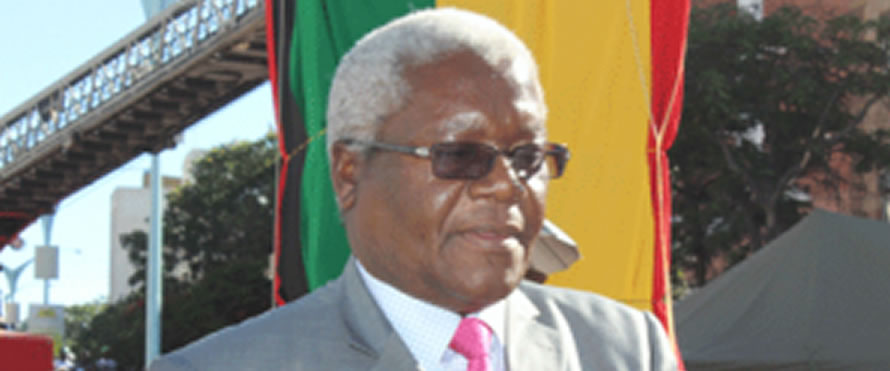
The Sunday News

Councils have reportedly done away with housing waiting lists and are now selling stands on a first-come-first-serve basis, a move that has been heavily criticised by both the Government and residents.
In the past, councils would insist that residents pay a yearly fee so they are included on the waiting list, of which council would then construct houses and allocate them using the waiting list.
However, investigations by this publication have revealed that people now access stands without being on the waiting list, with councils now demanding cash upfront.
Addressing journalists recently, Bulawayo City Council director of housing and community services Mr Isaiah Magagula confirmed that they had since abandoned the housing waiting list.
The director blamed this on the harsh economic environment, saying if they used the waiting list, 80 percent of the people there would not afford the stands.
Bulawayo’s housing waiting list stands at 110 000.
“The truth of the matter is that the majority of our people cannot afford accommodation because they are low income earners but if we used the waiting list, we will get to a point where the majority of the people we shortlist won’t be able to afford what we require.
“What we do now is that when we have stands we are now pre-selling them, where we advertise on the local media calling for anyone interested. We then come up with a shortlist which is then deliberated on by an interdepartmental committee together with our auditors but in general it’s all about whether you can afford our charges or not,” said Mr Magagula.
He said of the price they charged for a stand they required 35 percent deposit and 15 percent VAT upfront, with the remaining balance payable over an 18-month period.
“This has become the trend in all councils. Just looking at the required figure you see for yourself that very few low-income earners can afford this figure. Worse still, we insist that this should be paid within a month. It is unfortunate but there is nothing much we can do.
“You should note that during the time when we used to strongly rely on the waiting list the Government used to provide a housing development fund but I think they last gave us that fund as far back as 1983, so now we have to fund everything hence these high costs,” said Mr Magagula.
He said the only way to assist home seekers was for the Government to ensure the return of building societies to help provide loans and also in the construction of houses.
The last batch of stands that were released by the local authority under the pre-sale method were at Emhlangeni, with the stands going for between $8 000 and $12 000.
Investigations by this publication also revealed that other local authorities were now also relying on the pre-sale format of selling stands and disregarding the housing waiting lists.
Minister of State for Provincial Affairs in Bulawayo Cde Nomthandazo Eunice Moyo said it was an unfortunate move by the council, noting that this came at a time when the Government was prioritising the provision of accommodation to citizens.
“I believe the local authority is mandated to provide accommodation to residents. It is also something that as a provincial minister I have to ensure happens. We cannot be continually saying the housing waiting list has ballooned, we should come up with strategies to reduce it and charging exorbitant fees for these stands is certainly not the solution,” said Cde Moyo.
Local Government, Public Works and National Housing Minister Dr Ignatius Chombo lamented this latest trend saying local authorities should not lose sight of their primary mandate of providing affordable accommodation to residents, with the goal of reducing the housing backlog.
He said while the harsh economic environment was understandable, councils had to improvise so as to be able to offer their residents accommodation.
“If councils fail to use their waiting lists we risk a situation where we have house barons who use their money to buy many houses or stands while the larger populace continues to suffer without any roof above their heads and have no option but to opt to pay high rentals to these barons.
“We still need these local authorities not to forget their primary mandate, it is not about them making money but pushing to provide affordable accommodation. This is the only way that we can reduce even the national housing backlog, which is currently pegged at over one million,” said Dr Chombo.
The minister revealed that reducing the housing backlog was also one of the mechanisms the Government would use to assess council officials’ performance during the council year, which determine whether their yearly contracts would be renewed or whether they would get bonuses at the end of the year.
Commenting on the matter, Bulawayo United Residents’ Association chairperson Mr Winos Dube said the move by the local authorities was not only unfair but a clear sign that local authorities gave residents a misguided picture that they were pro-poor.
“We always hear the statement pro-poor but in actual fact these councils are far from being pro-poor. They tell us that the housing backlog is at 110 000 but again this is not true, the truth is the figure is way more than that, people simply cannot afford these stands.
“This has to be addressed as a matter of urgency; it goes to show you that now accommodation is meant for the rich only and this is at a time when Bulawayo’s economy is at its lowest, with a larger population being unemployed due to company closures, something has to be done as a matter of urgency,” said Mr Dube.



